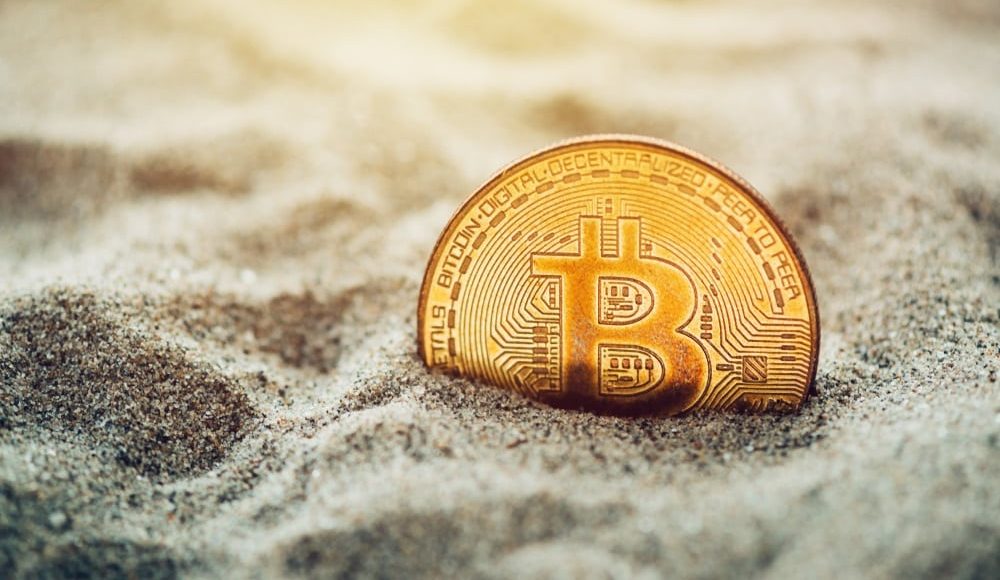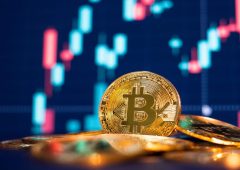Cathie Wood Discusses Bitcoin’s Current Bull Cycle and ETF Prospects
10.07.2024 20:00 2 min. read Alexander Stefanov
ARK Invest CEO Cathie Wood believes Bitcoin (BTC) is only halfway through its current bull market cycle.
In an interview with science and tech entrepreneur Peter Diamandis, Wood explained that ARK’s analysis suggests that the bull market is not yet nearing its end. She highlighted that parabolic price increases typically occur towards the end of bull markets, indicating a significant rise still ahead.
Wood shared that ARK has a dedicated team focusing on crypto, with one member specializing in Bitcoin on-chain analytics. Based on their analysis, which considers the relatively short history of Bitcoin, they believe the current bull market is at its midpoint.
This midpoint does not necessarily imply that the price increase is halfway complete, as the most dramatic price surges often happen in the latter stages.
Additionally, Wood predicts that at least one major financial firm, such as Morgan Stanley, UBS, Wells Fargo, Bank of America, or Merrill Lynch, may start offering spot Bitcoin exchange-traded funds (ETFs) in the next few months, potentially leading to a surge in Bitcoin adoption.
She noted that none of these major firms have listed Bitcoin ETFs on their platforms yet, as they are still conducting due diligence.
However, Wood anticipates that once one firm, possibly a smaller independent registered investment advisor like LPL, lists a spot Bitcoin ETF, other firms will quickly follow suit.
-
1
Bitcoin: Is the Cycle Top In and How to Spot It?
09.07.2025 16:00 2 min. read -
2
Crypto Inflows hit $1B Last Week as Ethereum Outshines Bitcoin in Investor Sentiment
07.07.2025 20:30 2 min. read -
3
Public Companies Outpace ETFs in Bitcoin Buying: Here is What You Need to Know
02.07.2025 12:30 2 min. read -
4
Robert Kiyosaki Buys More Bitcoin, Says He’d Rather Be a ‘Sucker Than a Loser’
02.07.2025 22:00 1 min. read -
5
This Week in Crypto: Whale Accumulation, Ethereum Signals, and a Sentiment Shake-Up
05.07.2025 21:00 3 min. read
Over $5.8 Billion in Ethereum and Bitcoin Options Expired Today: What to Expect?
According to data shared by Wu Blockchain, over $5.8 billion in crypto options expired today, with Ethereum leading the action.
IMF Disputes El Salvador’s Bitcoin Purchases, Cites Asset Consolidation
A new report from the International Monetary Fund (IMF) suggests that El Salvador’s recent Bitcoin accumulation may not stem from ongoing purchases, but rather from a reshuffling of assets across government-controlled wallets.
Ethereum Sparks Altcoin Season as FOMO Shifts Away From Bitcoin
Traders are rapidly shifting their focus to Ethereum and altcoins after Bitcoin’s recent all-time high triggered widespread retail FOMO.
BSTR to Launch With 30,021 BTC, Becomes 4th Largest Public Bitcoin Holder
BSTR Holdings Inc. is set to become the fourth-largest public holder of Bitcoin, announcing it will launch with 30,021 BTC on its balance sheet as part of its public debut.
-
1
Bitcoin: Is the Cycle Top In and How to Spot It?
09.07.2025 16:00 2 min. read -
2
Crypto Inflows hit $1B Last Week as Ethereum Outshines Bitcoin in Investor Sentiment
07.07.2025 20:30 2 min. read -
3
Public Companies Outpace ETFs in Bitcoin Buying: Here is What You Need to Know
02.07.2025 12:30 2 min. read -
4
Robert Kiyosaki Buys More Bitcoin, Says He’d Rather Be a ‘Sucker Than a Loser’
02.07.2025 22:00 1 min. read -
5
This Week in Crypto: Whale Accumulation, Ethereum Signals, and a Sentiment Shake-Up
05.07.2025 21:00 3 min. read


